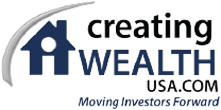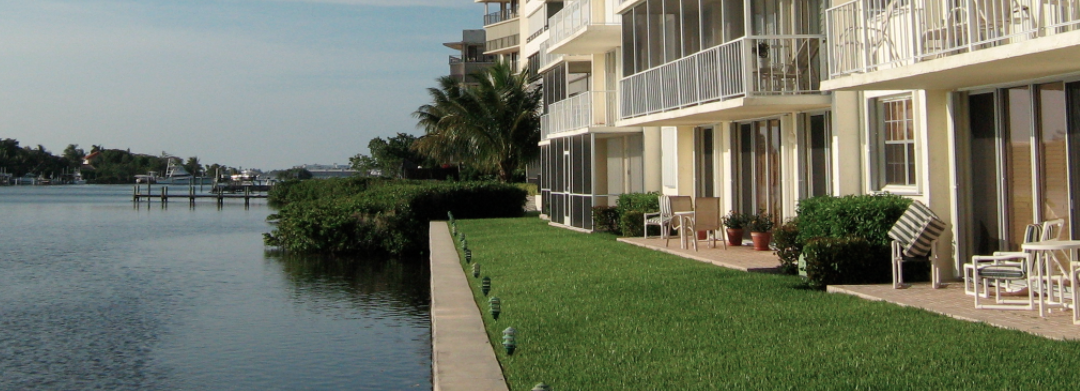While I love investing in many types of real estate, for me, different asset classes have different exit strategies. As a general rule, I am not a holder of condos as long term investments but will, from time to time, buy them for resale. My concern with holding condos or town homes as long term investments is the potential for an HOA or condo association to hold too much control over my investment. I am sure there are many very successful condo investors out there so this is not an attack. The asset class just isn’t my first investment choice.
If you want to invest in condos and town homes the key is to recognize some of the potential risks and consider your options in advance. This way you can mitigate surprises before purchasing the unit.
Many people believe owning a condo or town home is easier than owning a single family home because you don’t have to worry about yard maintenance, roof repairs, etc. Compared to buying a single family house there are definite differences with condos. When purchasing a condo you are not only buying your unit. You are also buying an ownership interest in the common areas of the condominium project such as the lobby, grounds, building exterior, etc. With common ownership comes risk and respponsibility.
The following information doesn’t cover everything you need to know, but it is a good start.
Insurance
It is usually a good idea to get a copy of the certificate of insurance, which is a summary of the condo association’s policy. First see if the replacement costs covered by the policy are an accurate reflection of the cost of rebuilding. You’ll want to make sure that the policy has a building-ordinance clause, which means that the insurance will cover the cost of bringing the building up to code if there is any rebuilding to be done.
This is usually more costly in terms of premium but is is much better than not being financially prepared for major repairs (especially when code related upgrades are required). On older buildings, there may have been many building code upgrades since the time of construction. As an example, over the years Florida’s hurricanes have wreaked havoc and many condo investors have suffered significant losses due to extended vacancies while waiting until their association and insurance carriers arranged for and completed repairs.
Finally, make sure that you understand exactly what the association policy covers and what you are responsible for. Typically property and liability insurance does not cover the interior of your unit, but rather the exterior of the building and common areas. You may need to buy your own insurance to protect your interior space and your tenant will need a renter’s policy to insure their belongings.
The HOA
Take a look at the minutes of the condo association board meetings to see what the owners have been griping about. If everyone was complaining about the faulty electrical, plumbing or the landscaper’s absence, you know that the complex is having management difficulties. Even if there aren’t any complaints, reading the minutes will reveal the sorts of projects that are under way at the complex; projects the seller may have neglected to mention. HOA fees pay for expenses such as maintenance of the common areas, insurance (property and liability), non sub-metered utilities, if any (such as water for irrigation and pools or electricity for exterior lighting and gates), repair reserves and more.
Management
I’m cautious of a condo complex whose owners manage the place themselves. Although many are operated efficiently, self-management can lead to more hassles for owners; especially non-occupant owners. If the condo development is professionally managed, check out the management company as thoroughly as you check out the association. Ask other owners. Ask people in nearby buildings. And be sure to interview the day-to-day manager directly. If you get saddled with a bad property manager, you can be sure of this: Your dream condo investment just might keep you up at night.
Fees
Be sure to ask what is included in the HOA fees and find out the delinquency rates of present owners. A portion of your HOA fees should be designated toward reserves and you should find out how much is allocated to reserves. You should also review the balance to confirm it is sufficient to cover things like roof repair and replacement, mechanical systems, façades, and other large capital improvements?
If people aren’t paying their association fees on time, it could be a sign of owner discontent or an indication that the association might be underfunded. Either way…it’s a red flag. If reserves are insufficient to pay for large expenses or capital improvements (or if reserves have already been designated for another planned expense) the HOA will assess an additional fee on the condo owners. This is called a “special assessment.” The seller should be able to tell you if any special assessments are planned, but do not rely solely on this information.
Ask to see all board minutes within the previous 12 months and ask to talk with the HOA treasurer. Find out if there is any pending litigation either by the HOA or against the HOA as these can often result in a special assessment for legal fees or damages. It is also a good practice to compare the association fees to those of similar nearby complexes. Are they too high or suspiciously low? Keep in mind that complexes with pools, gyms and other amenities may have higher maintenance and liability insurance costs.
High-rise comdominium towers typically have more complex mechanical systems such as elevators and HVAC systems that usually require extra reserves and maintenance fees. On the other hand, low-rise and single story developments may have extensive grounds that require landscaping and repaving. You might also ask to see two to three years of HOA fee history so that you can see how they are trending. Have they gone up significantly? Will they continue to go up? These are all good questions to ask of the seller or of the HOA treasurer. If the seller is a bank, you won’t learn much so talkig with the HOA Treasurer is a must!
Reserves
If the fees are low in comparison to nearby complexes, ask why? In newer condo and townhouse projects, builders sometimes charge lower fees to entice buyers. Yet, once the units are sold and the property is turned over to the HOA, the fees increase significantly in order to cover the costs of maintenance and reserves. Ask if the community has done a reserve-fund review in the past five years.
According to Lester Giese, the author of The 99 Best Residential & Recreational Communities in America, he recommends the following formula: If the complex is one to 10 years old, the reserve fund should have 10% of the cost of replaceable items (roofs, roads, tennis courts, etc.). Between 10 and 20 years old, the repair fund should be at 25% to 30%. At 20 years, that amount should be 50% or above. Residents who brag that they don’t pay much in maintenance may be in a complex that either is not being kept up well or is living
Liens
One thing to be careful of is that the HOA may place liens on units for non-payment of fees and seek a deficiency judgment against any of the unit owners for non-payment. You could be on the hook for the seller’s delinquency. A title report should disclose any liens placed on the unit you are buying. Don’t assume, however, that the condo association will put a lien on all outstanding fees, and that it will therefore appear in the title report. You must get a guarantee from the seller that all fees are paid as agreed as well as an estoppel letter from the HOA. A good title company or closing attorney can help you with this but be sure to make the request.
Condo docs
State governments require condo developers to file a declaration with the local county, which describes the condominium project, establishes a homeowners association and either refers to or includes the bylaws. The bylaws govern how the association should be run, such as the number of meetings per year, required votes, and the election of directors and officers. The declaration may contain covenants, conditions and restrictions (CC&R’s) which are rules specifying how condo owners may use their property and the common areas. These rules are binding on all purchasers. Once the developer hands the project over to the HOA, additional rules can be added through voting (according to the bylaws established).
CC&R’s and condo regulations limit the rights of property owners, but with the intention of retaining and improving the value of the property in the subdivision or project. Possible restrictions could be pets, holiday decorations and home businesses.
You should be sure to get a copy of the declaration, the bylaws (if not included) and all rules and regulations established by the condo association to make sure you are aware of any restrictions that will conflict with your intended use of the unit.
A good friend failed to do this before his purchase and then learned that the association had to approve all new tenants, his investment unit sat vacant for over a year and a half because their requirements were so strict. He eventually lost the place because he could no longer afford to make payments on a vacant condo.
Renting, Resale & Financing
Not only should you make sure you are aware of and willing to accept the restrictions imposed by an HOA, you need to ensure that the rules are sufficient to maintain your investment objective and resale value of the unit. If the tenant population is over 10%, there should be clear rental policies, either listed in the bylaws or appended as an amendment. Will the management company find tenants for you? Are you allowed to find your own? If the management company does it, do they get enough good tenants? You might want to ask other tenants or owners about their experience. In addition, ask to see the association’s lease, and have a real estate attorney review it to protect you.
An important thing to consider is that an association can change its bylaws to prohibit or restrict renting at any time. The more owners who rent, the less chance that will happen. More importantly on resale, a lender may consider all units in a condominium project that allows too many rental units to be investment property. For example, if the complexes rules allow 30% or more units to be rented (even if they aren’t actually rented) lenders could deny potential buyers a home loan for an owner occupant and will instead offer an investment property loan that may require a lower loan-to-value ratio and a higher interest rate. If a rental restriction is not in place, or if there is room for the HOA to adjust the level of rentals, your ability to sell the unit later could also be impaired.
Caveat Emptor
Buying a condo or town home may seem easy compared to buying a single family house. But in many ways, it carries a higher level of risk and requires more due diligence on the part of the purchaser. Just as you might when purchasing a single family house, a home inspection by a reputable and knowledgeable in inspector is recommended. For owner occupants and tenants condominiums and town homes offer many benefits such as on-site amenities, low maintenance and convenience. Condominium and town home living often provides a desirable lifestyle for many given their tendency to be located in pedestrian-friendly neighborhoods or other urban environments. These benefits however, don’t always translate to an ideal investment. It is always up to the investor to perform their due diligence, examine the paperwork thoroughly, ask lots of questions in order make an informed decision before you buy.
After the fact is a tough time to learn and you don’t want to ever find yourself at the mercy of the Greater Fool Theory.
Happy investing,
Augie



